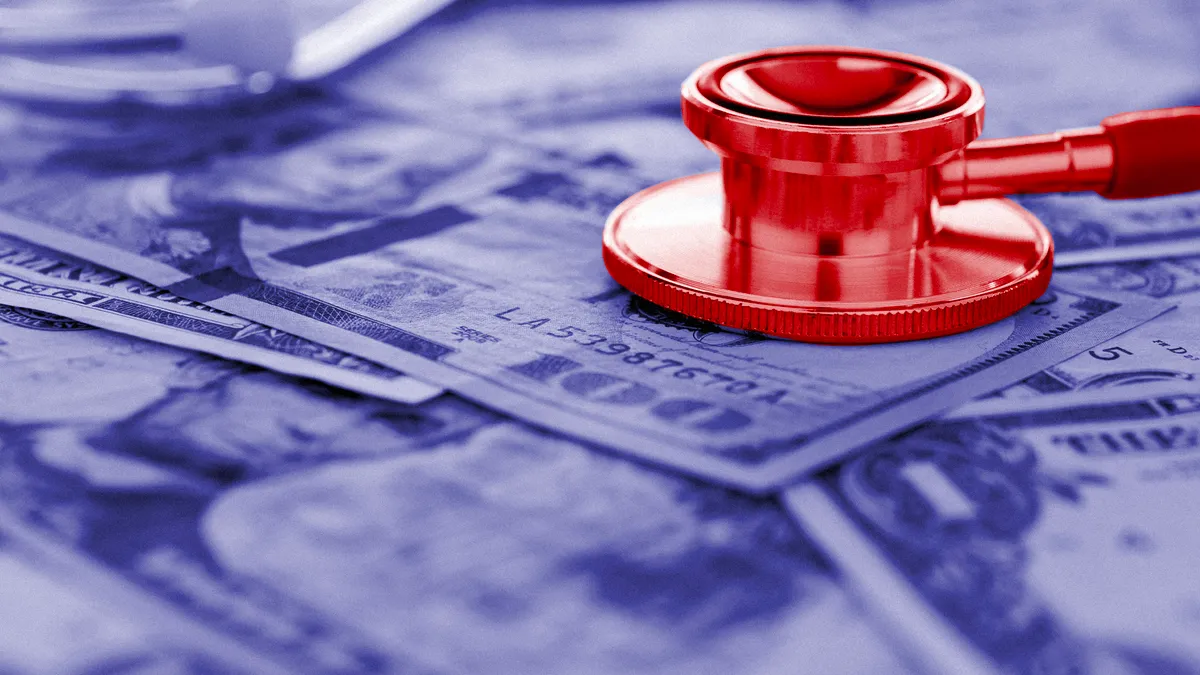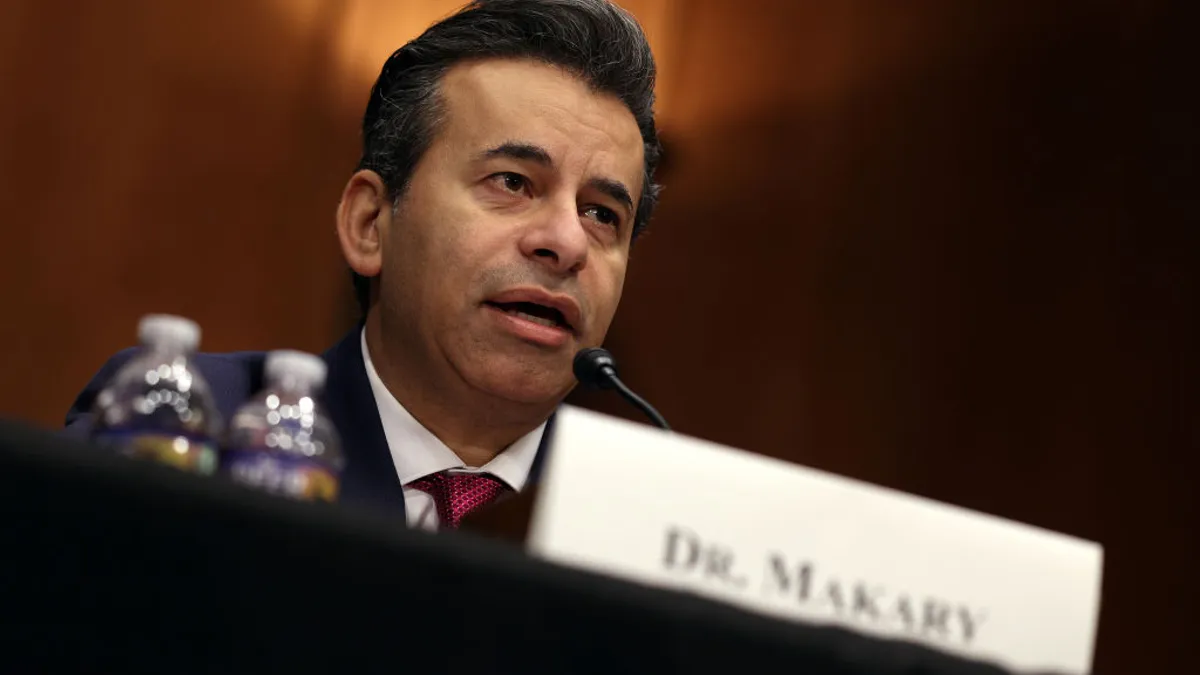The medtech earnings season kicks off next week with a slew of first quarter results, including Abbott Laboratories, Edwards Lifesciences, Intuitive Surgical, Johnson & Johnson, Roche and Quest Diagnostics, that will help reveal if elective procedures have recovered and if the COVID-19 testing boom has persisted.
The pandemic began to significantly affect medtechs in the first quarter of 2020. Having seen pressure in China early in the quarter, the industry was hit by the collapse of elective procedure volumes in the U.S. and Europe in the final two weeks of March. The full impact only arrived in the second quarter, but this set of results marks the start of a period of pandemic-affected year-on-year comparisons.
Reporting season gets underway on Tuesday with results from four major medtechs, including Abbott.
In the fourth quarter, Abbott generated $10.7 billion as $2.4 billion in COVID-19 testing sales drove diagnostic revenues up 110%. In late January, Abbott CEO Robert Ford told investors "probably Q1 [COVID-19 test revenue] is going to be at that range of $2.5 billion or so." On average, analysts expect total sales to hit $10.8 billion, up 40% year on year.
However, reports of a slowdown in COVID-19 testing have emerged since Ford's comments. In March, Quidel said test demand fell 30% to 40% in February and March from the December high, leading it to reduce its 2021 guidance by $400 million. Abbott competes with Quidel in the antigen test space. Lucira Health, a far smaller competitor, also noted "an overall slowdown in testing" in the U.S.
The breadth of Abbott's portfolio means the easing of the pandemic could benefit some parts of its business to offset any slowdown in COVID-19 testing. In the fourth quarter, surging coronavirus cases caused a drop in cardiovascular and neuromodulation sales at Abbott. Amid the turmoil, sales of the continuous glucose monitoring system Freestyle Libre have continued to grow quickly.
However, the number of new coronavirus infections in the U.S. continues to rise, with cases increasing over the past week in 25 states, and the more contagious U.K. variant has become the most common strain in the country.
Abbott reports on Tuesday along with three companies that are vulnerable to the deferral of elective procedures.
Edwards Lifesciences, a rival to Abbott in the cardiovascular disease space, saw sales of its transcatheter aortic valve replacement fall in the fourth quarter as COVID-19 cases rose.
The decline was in keeping with earlier quarters, when sales fell and rose in inverse correlation to coronavirus cases. With vaccines forecast to bring the pandemic under control, and 2020 providing an easier comparison, Edwards expects to achieve mid-teens growth this year, a forecast it retained despite making a slow, pandemic-affected start to 2021.
In late January, Edwards said the first few weeks of the year suggested sales in the first quarter would be slightly down on the $1.2 billion it generated in the fourth quarter of 2020. Since then, analysts have tracked signs that patients began to re-engage with the healthcare system toward the end of the first quarter. That could benefit Edwards, although the full impact will only arrive in the second quarter and analysts still expect sales to fall slightly on a sequential basis.
Intuitive Surgical is subject to the same external forces as Edwards. The robotic surgery leader issued an early warning about the impact of COVID-19 in mid-March 2020 in a notice that said "procedure volume and system placement disruption will expand as the COVID-19 outbreak intensifies globally."
The disruption was still present in the fourth quarter, when da Vinci procedures in California went from 8% growth in October to a 6% fall in December, and continued into 2021. Intuitive said volumes early in 2021 were at the bottom end of performance in the fourth quarter, but early evidence of the return of elective procedures is a positive for the company.
Johnson & Johnson is also affected by the fall and rise of elective procedures, although the breadth of its portfolio provides some insulation from the trends. In the fourth quarter, J&J medical device sales grew sequentially, while remaining down year on year, despite the slowdown in elective care hitting its hip, knee and spine franchises.
Ashley McEvoy, worldwide chairman of medical devices at J&J, provided some color on the outlook for the first quarter at an investor event early last month, when she said volumes in Europe fell 15% in December and stayed suppressed into February. The U.S. suffered a 10% decline but by early March McEvoy had started to see the market recover.
Where does COVID-19 testing go from here?
Two other major medtech companies, Roche and Quest Diagnostics, report their first quarter results on Wednesday and Thursday. Both companies are more affected by changes in COVID-19 testing than surgery procedure volumes.
Sales at Roche's diagnostics unit grew 28% in the fourth quarter, fueled by a 125% jump in molecular testing revenues. In early February, Thomas Schinecker, CEO of Roche Diagnostics, said his business had "an opportunity to outgrow" fourth quarter performance over the first three months of 2021. At that time, Schinecker foresaw "very strong growth" throughout the first half of the year, although, as previously stated, signs of a slowdown in testing have emerged since then.
Quest is in a similar position. Sales grew 55.8% in the fourth quarter but the company opted against offering guidance beyond the midpoint of 2021 given uncertainty over the duration of the COVID-19 testing boom. Quest expects sales of around $5 billion in the first half, which represents growth of at least 33%.
While expecting COVID-19 test volumes to decrease over time in 2021, Quest said it lacked the visibility to offer guidance for the full year.
Jefferies analysts earlier this month said they see U.S. COVID-19 testing declining 20% to 30% quarter/quarter for the rest of 2021, exiting the year at a peak of around $8.5 billion before gradually declining toward a seasonal range of $150 million to $250 million.
"We assume the late March decline will peak into 3Q coinciding with vaccine timelines and mandate roll-backs. Thereafter, we assume the slide will moderate into 4Q but stay elevated to account for lingering elevated demand linked to [work from home] reversals, variant testing, and holiday travel," the analysts wrote.




















